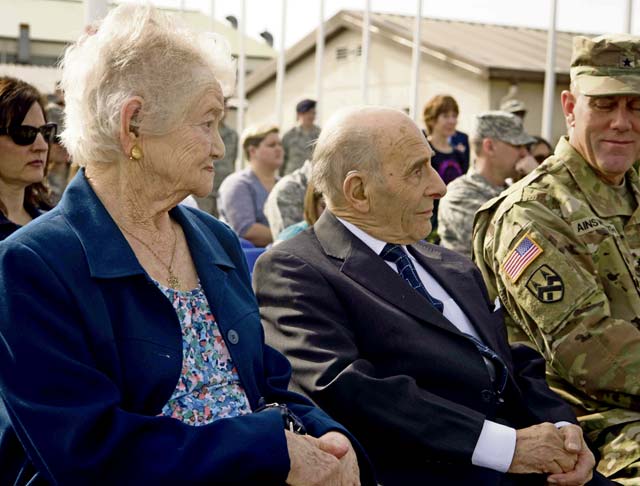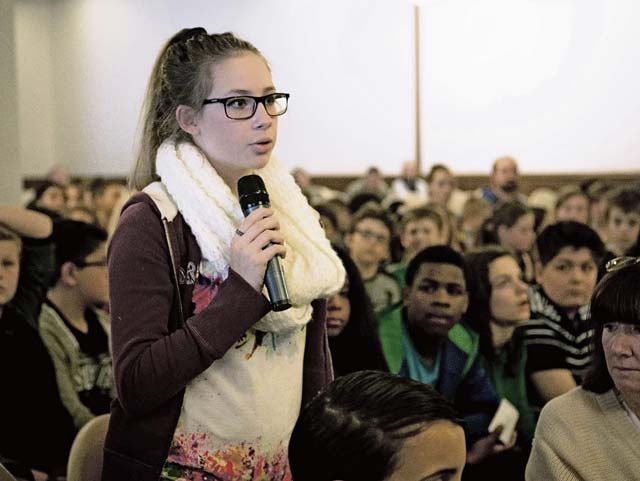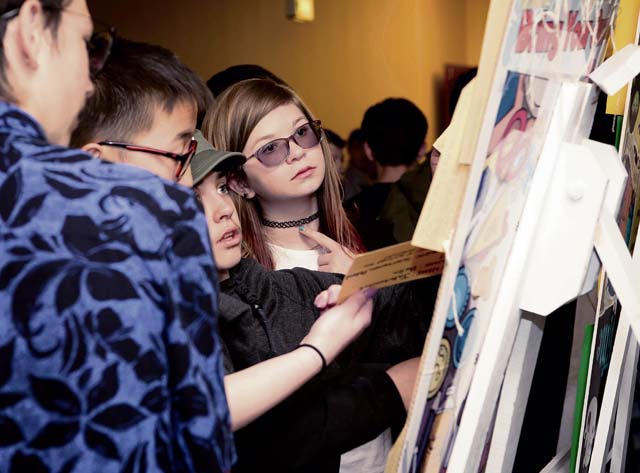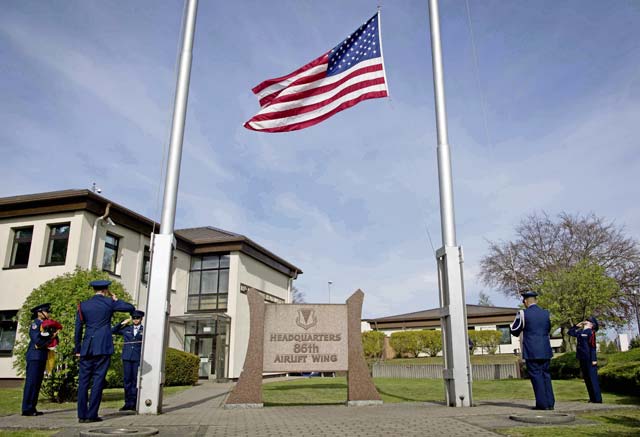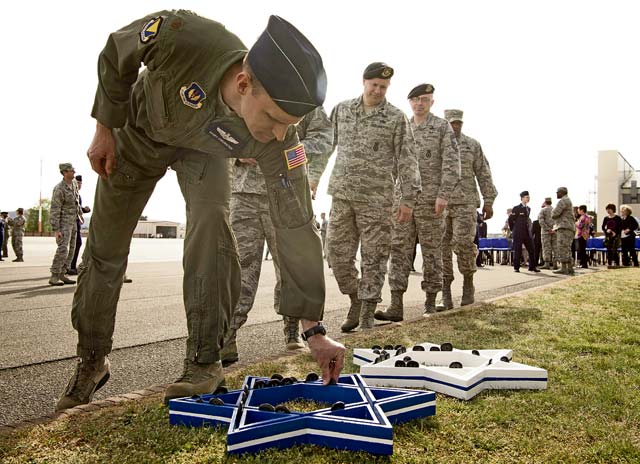
Ramstein personnel and families honored the memory of Holocaust victims during the 86th Airlift Wing’s Holocaust Remembrance April 24. As honored guests at the remembrance, Bob and Ann Kirk, Holocaust survivors, told their stories of persecution and their experience on the Kindertransport.
According to the 86 AW Holocaust Remembrance Day Committee, the Holocaust was the systematic, state-sponsored persecution led by Adolf Hitler and the Nazis during World War II. During the Holocaust, an estimated 11 million people were killed and many more were persecuted for their race, religion and ethnicities. As children, the Kirks escaped persecution through the Kindertransport, a series of rescue efforts which brought thousands of refugee Jewish children to Great Britain from Nazi Germany between 1938 and 1940.
During their visit to Ramstein, the Kirks stepped on stage to capture Airmen, civilians and children with stories and pictures from their days of struggle.
“As soon as the Nazis took power, everything changed,” Mr. Kirk said.
Mr. Kirk spoke of the new regulations that began to make life for Jewish people more and more difficult and how his life at school began to change as well.
“There was more bullying and my classmates were ordered not to associate with Jews,” Mr. Kirk said. “We were usually forced to sit in the back of the class and not allowed to participate in the lesson. You can imagine how much we learned this way.”
The Kirks, who met at a club for young Jewish refugees and have been married 67 years, took turns telling their stories from their perspectives.
“On the night of November 9th, I was awoken by my parents but they wouldn’t tell me what was wrong,” Mrs. Kirk said. “We packed a bag and went out into the street where I saw glass everywhere and synagogues in flames. That evening, we went to stay in a flat which my mother’s best friend had left when she had immigrated to England.”
The night Mrs. Kirk describes is known as Kristallnacht, or night of broken glass, when Nazis executed a major program to destroy hundreds of synagogues throughout Germany and Austria, attack homes and businesses and send tens of thousands to concentration camps. Kindertransport was an organization established to transport children and find places away from danger for them to stay.
“In April of 1939, my parents took me to the railway station,” Mrs. Kirk said. “As the train passed, they frantically waved to me. I was 10 years old and that was the last time I ever saw them.”
The Kirk’s parents were eventually taken to concentration camps and, though they exchanged letters, neither of the children ever saw their parents again.
Though times were difficult, the Kirks said they consider themselves fortunate for the lives they have lived. They spoke of coping with their pain and learning to live normal lives.
“Basically we just had to get on with it,” Mrs. Kirk said. “I think the feeling at the time was, don’t look back. Just look to the future.”
Mrs. Kirk described a smuggled letter which she received from her father while she was living in Great Britain.
“He said be happy, live your life to the full, always tell the truth and do not grieve,” Mrs. Kirk said. “That was June, ’42. I knew Dad wouldn’t have wanted us to be miserable, so we refused to be miserable.”
After the Kirks spoke they took questions from the audience, several of whom expressed gratitude for the experience.
“I don’t think there’s a person here who is not changed and will not forever remember what you shared,” said Col. Donnette Boyd, 86 AW wing chaplain.
After the presentation, the 86 AW held a wreath laying and retreat ceremony. The wreath was tied with ribbons of different colors representing various groups who suffered during the Holocaust. The victims included Roma and Sinti (or Gypsies), the mentally and physically disabled, Polish, gays and lesbians, Jehovah’s Witnesses, Soviet prisoners of war and political dissidents.
The Kirks laid the ceremonial wreath and watched as the flags were lowered, folded to the sound of the German and U.S. national anthems. As the participants left, each placed a symbolic stone within a wooden Star of David, reflecting the Jewish practice of leaving a stone to mark a visit to the gravesite of a loved one. The Jewish people also place the stones as a symbol of the lasting presence of the person’s life and memory.
Despite the suffering of so many, the Kirks do not carry a message of resentment. When asked for a lesson from his experiences, Mr. Kirk replied without hesitation.
“You mustn’t ever use a broad brush to describe people,” Mr. Kirk said. “Every person is an individual with their own rights, aspirations and dignity. If you strip the dignity away, you dehumanize. That’s dangerous. I think that’s the most important message that I can give.”
